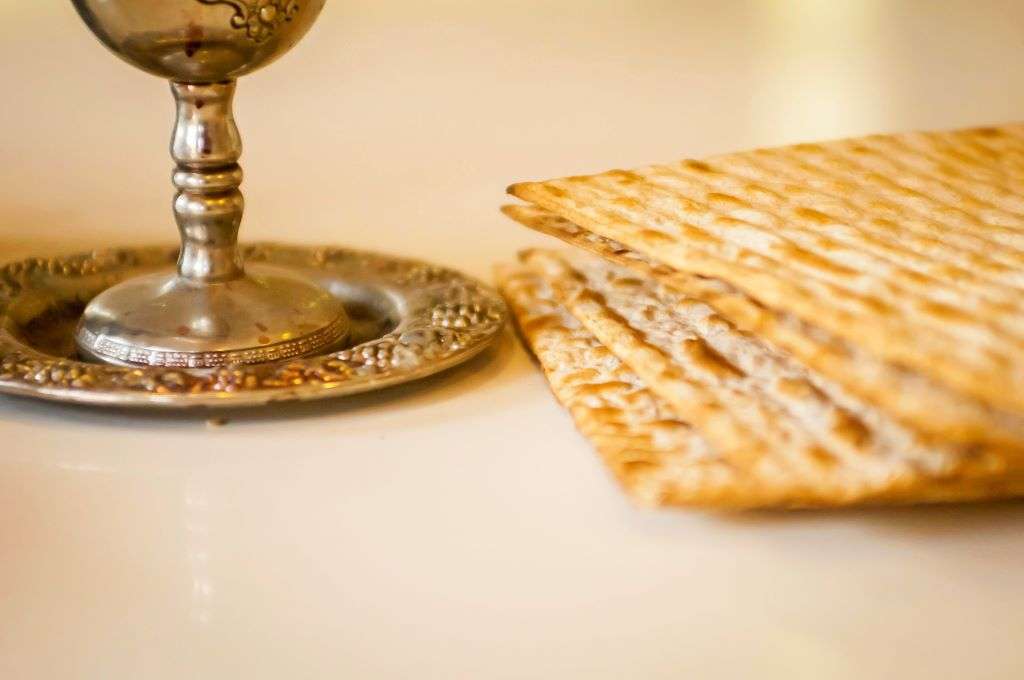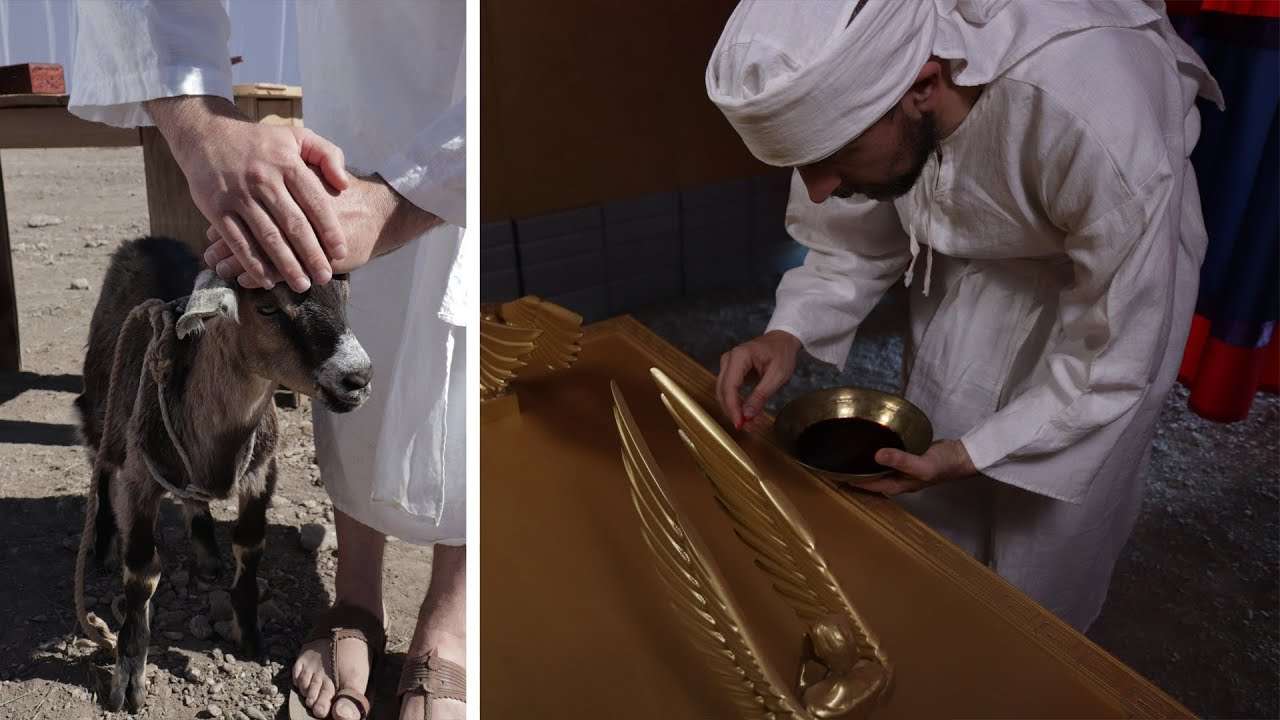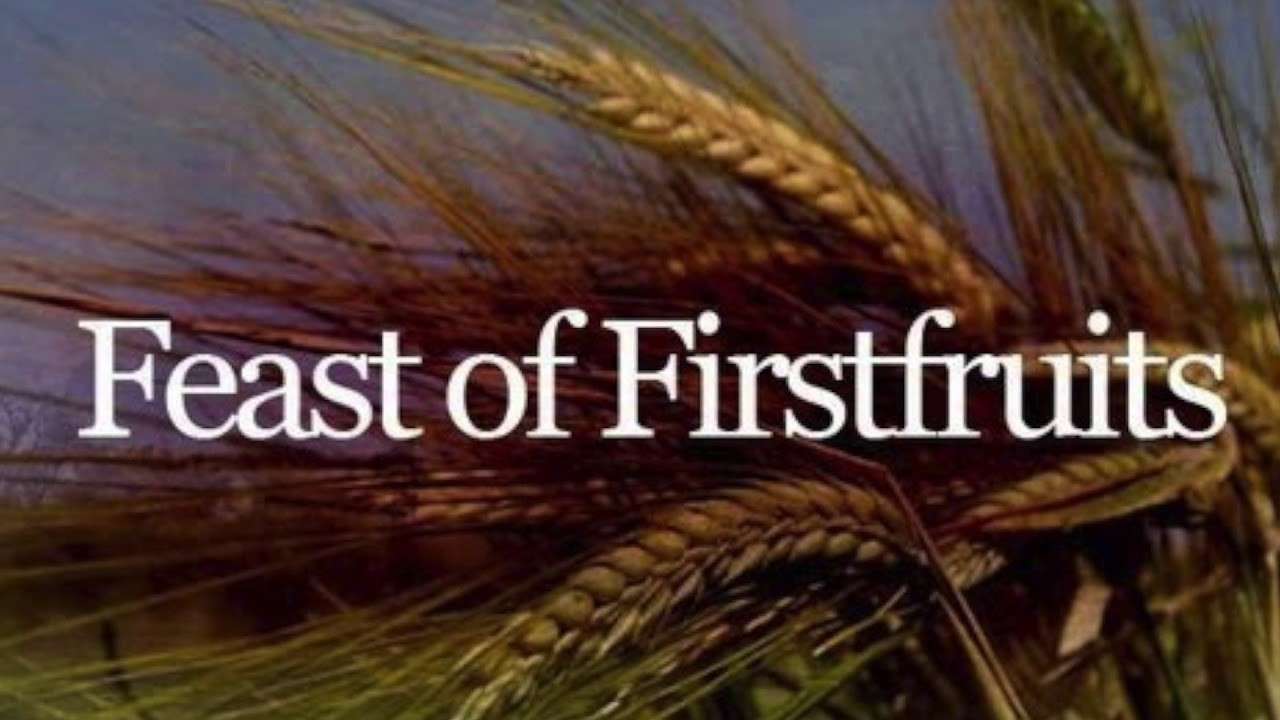
The Feast of Unleavened Bread (These articles are taken from his book ‘The Feasts of Jehovah”)
Mr. John Ritchie
“Seven days shalt thou eat unleavened bread therewith, even the bread of affliction”
(Deut. 16.3).
“Let us keep the feast, not with old leaven, neither with the leaven of malice and wickedness, but with the unleavened bread of sincerity and truth” (1 Cor. 5:8, R.V.),
“Then within His home he led me,
Brought me where the feast is spread,
Made me eat with Him my Father,
I, who begged for bondsman’s bread.
Not a suppliant at His gateway,
But a son within His home–
To the love, the joy, the singing,
To the glory I am come,”
The feast of unleavened bread began on the day after the Passover, and continued for seven days–a perfect period of time. The lamb was slain on the fourteenth day, at sunset; the feast of unleavened bread began immediately after the fifteenth day commenced, which was just after sunset, so that there would be no lapse or loss of time and no interval between the death of the lamb, the sprinkling of the blood, and the keeping of the feast. And thus it was when the feast was first kept in the land of Egypt. The lamb was slain in the evening, the judgment fell at midnight, and the redeemed of the Lord were out of Egypt in the morning. The killing of the lamb was a single act, and the Passover was reckoned as a one-day feast, as was also the Feast of First-fruits, Pentecost, and the Atonement. These one-day feasts all point to certain great acts of Jehovah’s hand, certain definite transactions of His, perfect and complete in themselves, whereas those feasts which were of seven and eight-day continuance, point to the outcome of these acts, and their results in blessing to the people of God. Thus, while the Passover is the type of Christ’s death Godward, the seven-day feast of unleavened bread, points to the whole course and character of the believer’s life on earth, from the day of his conversion onward. It speaks of communion with God based upon redemption, in holiness and truth. The blood of Christ is the foundation of all true fellowship with God: the Person of Christ, –feeding on the Lamb slain–the only means whereby such fellowship may be maintained; and holiness–the putting away of leaven–the condition necessary for its enjoyment. We have the Holy Spirit’s own exposition of this type fully given in 1 Cor. v. 7-8. R.V. –“Christ our Passover is sacrificed for us: wherefore let us keep the feast not with old leaven, neither with the leaven of malice and wickedness; but with the unleavened bread of sincerity and truth.
The blood on the door-posts and lintel was the foundation of all; not only of security, but of peace. There could have been no peaceful feeding on The lamb, no assurance of safety apart from it. No more can there be true communion with God, until there is knowledge of salvation and settled peace with God. This made secure, then the Lamb roast with fire, was placed on the table, and around it the redeemed of the Lord gathered to keep the feast. What a feast for the ransomed soul, is the Person of Christ! The Lamb of God sacrificed! The Holy One of God slain for sinners ! To feed on Him is strength. Girded loins, shod feet, and staff in hand, all speak of pilgrimage. They stood in Egypt, but they were not of it. They were ready to go at the signal from heaven. So the saints of God are but pilgrims here. The world is not their home. The Cross has detached them from it, cut all the links that bound them to it, and left them strangers here. As one has sweetly sung–
“The cords that bound my heart to earth
Were loosed by Jesus’ hand;
Before His Cross I found myself
A stranger in the land.”
The keeping of the feast in Egypt, in the wilderness, and in Canan, in the place where the Lord had placed His Name, was always to be of the same character throughout. The people’s surroundings were different, but the feast remained the same. Redemption as the basis of communion is unchangeable. Whether as “strangers” in the world ready to depart, as in Exodus 12, or “pilgrims” in the wilderness passing onward, as in Num. 9, or “possessors” of the land of promise, as in Josh. 1:11, the feast was just the same. Thus we learn the saint’s communion is based on redemption, sustained by feeding on Christ, and maintained in holiness and separation from evil. These are principles of eternal value, unchangeable as the character of God.
The feast was to be kept with “unleavened bread,” and no leaven, or leavened bread was to be seen in their habitations. It is worthy of notice, how strict and how searching were the commandments of Jehovah concerning leaven and its use. 1.–No leavened bread was to be eaten. 2.–No leaven was to be seen. 3.–No leaven was to be allowed in their houses (Exod. 13: 7). The most diligent search would require to be made in cup-board and kneading-trough, to make sure that no atom of the corrupt thing was there, else “a little leaven “left and allowed, would soon leaven “ the whole lump”.
Leaven is the figure of evil; only evil, always evil, and of such evil as permeates and carries corruption with it wherever it works. There must be none of this allowed where communion with God is sought. Sin in the nature there always will be, but sin in practice, sin as it appears in its workings, there must not be, else communion with a holy God is impossible. “Put off the old man”: “Lay aside all malice”: “ Put away lying,” are words that show what God means by the putting away of leaven, by those who would commune with God. “Old leaven” may refer to old habits, old sins, and old associations, indulged and loved before conversion. These, especially in moments of unwatchfulness, are apt to assert their power, and seek to lead the believer into captivity. Well, it is, though humbling to remember, that the roots of every sin man was ever guilty of, remain in the flesh, and but for the restraining grace of God, and the indwelling Spirit, would yield their fruit. But if this be what is meant by “old leaven” what then can “new leaven” be ? May it not remind us that there are other forms of evil to which believers are subject, which, if they become unwatchful and neglectful of self-judgment, may mar their communion with God, as really as the grosser sins of their unregenerate days, if indulged, would surely do. Envy, jealousy, pride, boasting, conceit in spiritual things, a sectarian spirit, a desire to be uppermost, and a host of kindred sins, to which the unconverted are not exposed, Satan often uses in the circle of the fellowship of saints, for evil and corruption, in a way that he cannot use them in the world. These and all that leads up to them, must be judged and put away in the saint, and in the assembly of saints, if communion with God is to be maintained. Unleavened bread was to be eaten seven days. “The unleavened bread of sincerity and truth” is the Spirit’s answer to this part of the type. Here we have the positive side of the truth. The putting away of leaven, is the negative side: eating “unleavened bread” is the positive side, and it is well to remember and have place for both. One-sided truth–either one or the other–is dangerous, and when pressed beyond its measure is disastrous. In the balance of truth, all sides duly proportioned, is our safety. What is “sincerity” ? A “sincere” man is usually taken to mean an earnest, well-meaning person, who does what he believes to be right, however far wrong his judgment may be. The word in Phil. 1:10 means– “Pure when viewed in the sunlight”. Just as you would take a drop of water and hold it on your finger between you and the sun. It is all clear: there is no impurity in it. “Sincerity” implies that there has been a holding of ourselves and our ways up to the light of God, a continual judging of all our motives, ways, and works in God’s sunlight. No doubt this will often show what is not “pure in the sunlight,” and cause us to bow our heart in confession, and our heads in shame before Him. Yet this is His way, and it is the way of holiness and health to our souls. It gives relish to the feast. Never does the soul so enjoy Christ as when self-judged. Being in “the sunlight” before God, leads always to the Cross and the Person of Christ. “The bread of affliction” (Deut. 16:3), forms part of the feast all the way through. “And truth.” This too forms part of the feast. The truth of God, His whole counsel, must have its place; no part kept back, no part neglected, nothing exalted out of measure. Thus, “the communion of saints”–a subject much spoken of but little known–first with their God, and next with their brethren, will be sustained and continued through the “seven days” of earthly life, right on to that hour, when the resurrection morn shall break, and those on earth who wake and watch, together with all who sleep, will be introduced to the unbroken communion of the feast above, where the Lamb in the midst of the throne surrounded by hosts, who proclaim Him “Holy” and “ Worthy,” shall be still and ever the subject of their worship and the subject of their Praise.


